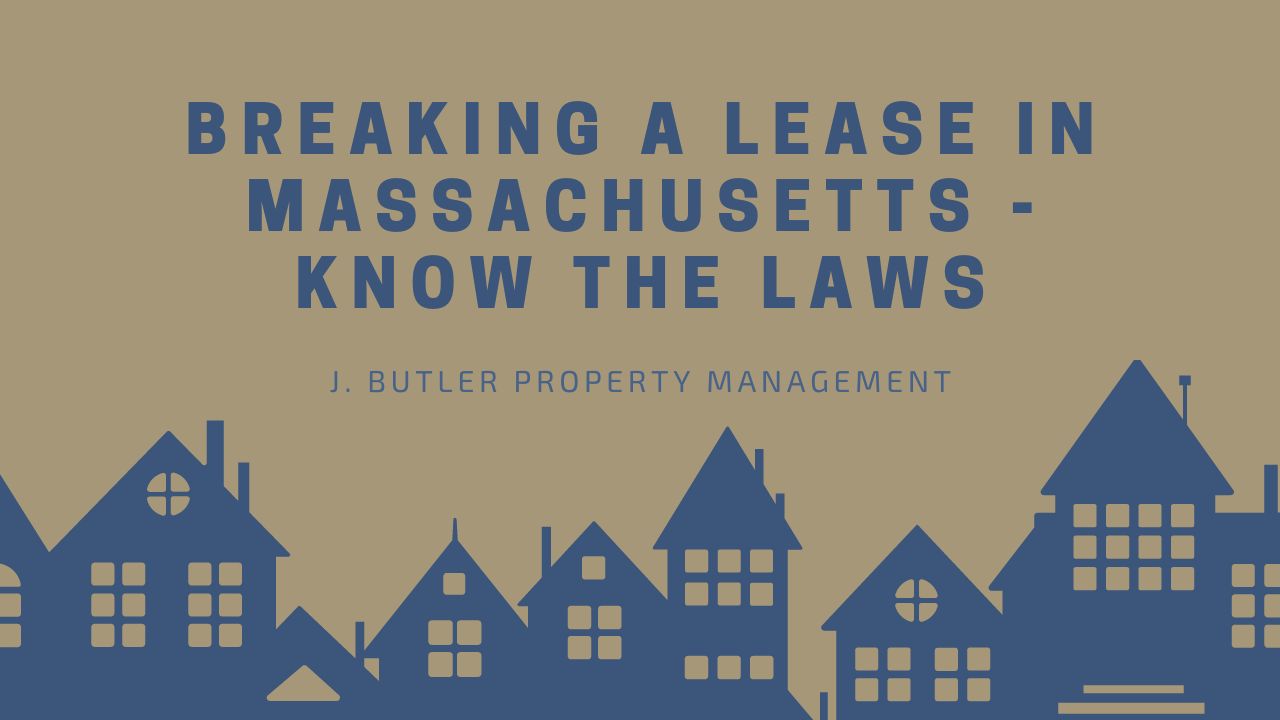
Breaking a Lease in Massachusetts – Know the Laws
June 19, 2023
Breaking a Lease in Massachusetts – Know the Laws
As a landlord in Massachusetts, it’s essential to understand both unjustified and justified reasons for early lease termination under landlord-tenant laws, as it enables you to be well informed about your rights as a landlord and your tenants’ rights.
This article will provide an overview of the process and key considerations involved in breaking a lease in Massachusetts. By familiarizing yourself with these important details, you can navigate potential lease terminations in a fair and legally compliant manner. Whether you are a new landlord or have been in the business for some time, understanding the guidelines surrounding lease breakage will help protect your interests.
Rental Agreement in Massachusetts
A clear rental agreement is crucial for landlords and tenants in Massachusetts. When a tenant signs the lease, it’s the landlord’s responsibility to ensure that they understand the consequences of unjustifiably breaking it and know their rights if they need to terminate it early justifiably.
In your rental agreement, it’s essential to include the required notice period for ending a periodic lease in Massachusetts. For instance, if the tenant rents on a weekly basis, they’re typically required to provide 7 days’ notice before terminating the lease. If the tenant rents on a monthly basis, the notice period is generally 30 days. However, there may not be a specific statute regarding notice periods if the tenant rents quarterly or yearly.

Additionally, you should specify your responsibility to make reasonable efforts to re-rent the unit if the tenant breaks the lease. In Massachusetts, if you can re-rent the property promptly, the tenant will only be liable for paying rent when the property remains vacant. This provision encourages landlords to mitigate their losses by actively seeking new tenants.
Furthermore, the lease agreement must address the tenant’s rights to sublet in Massachusetts. A tenant cannot sublet the property without the landlord’s consent. If tenants wish to sublet, they must formally request approval from the landlord, preferably by certified mail. As the landlord, you can accept or reject the subletting request based on your discretion.
Unjustified Reasons to Break a Lease in Massachusetts
Tenants in Massachusetts need to understand that certain reasons for breaking a lease, while significant in their personal lives, may not provide sufficient legal justification to be released without penalties. The following reasons generally don’t offer legal protection against breaking a lease:
- – The tenant bought a house: Purchasing a house does not typically serve as automatic grounds for breaking a lease without consequences.
- – The tenant is relocating for a job or school: While job or school relocations may be valid reasons for a tenant to desire lease termination, they do not automatically exempt them from their contractual obligations.

- – The tenant is upgrading or downgrading: A decision to upgrade or downgrade the living situation is a personal choice and does not generally warrant breaking the lease without incurring penalties.
- – The tenant is moving in with a partner: While moving in with a partner may be a significant life event, it does not provide legal grounds for breaking the lease unilaterally.
- – The tenant is moving to be closer to the family: Proximity to family, while important, is not considered a justifiable reason for breaking a lease without facing penalties.
In cases where a tenant wishes to break a lease for any of the above reasons, it’s advisable to approach the landlord and request a mutual termination agreement. This lease agreement should be put in writing with all necessary clauses and signed by both parties to ensure the termination is conducted in a legally compliant manner.
Landlords need to ensure that their tenants are aware that breaking a lease without court approval or outside the conditions outlined in the lease agreement can have legal and financial consequences. Seeking proper channels and agreements with the landlord is essential to effectively navigating lease termination in Massachusetts.
Justified Reasons to Break a Lease
As a landlord in Massachusetts, it’s important to be familiar with the justified reasons for a tenant to break a lease early. Understanding these reasons will help you navigate lease terminations with fairness and compliance. Here are justified reasons for lease termination:

Unit is Uninhabitable
Maintaining habitable living conditions is a fundamental responsibility of a landlord. If a rental unit becomes uninhabitable due to severe maintenance issues, health hazards, or violations of building codes, the tenant has the right to terminate the lease. As a landlord, you should proactively address maintenance concerns and promptly rectify any issues to ensure your tenants’ well-being.
Domestic Violence
As a landlord, you prioritize the safety and well-being of your tenants. In domestic violence cases, tenants have legal protections that allow them to break the lease without penalty. It’s crucial to provide support and resources to tenants facing such situations, ensuring their safety.
Active Military Duty
As a landlord, you need to be aware of the fact that tenants can terminate their lease early under the Servicemembers Civil Relief Act (SCRA) if they are called to active military duty. It’s crucial to honor this provision and ensure a smooth transition for the tenant.
Landlord Harassment
As a responsible landlord, you strive to create a respectful and peaceful living environment for your tenants. Engaging in harassment, invasion of privacy, or other abusive behaviors towards tenants is unacceptable. Tenants have the right to break the lease if they experience landlord harassment. Being aware of such behaviors and maintaining professionalism in landlord-tenant relationships is crucial.
Bottom Line
Now that you know the justified reasons for breaking a lease in Massachusetts, you can approach lease terminations fairly and clearly. You should also remain informed of policies surrounding security deposits, and the legal eviction process.
J. Butler Property Management prioritizes landlord-tenant relationships and ensures compliance with Massachusetts laws. If you have any questions or need assistance with property management, contact our experienced team today!
Disclaimer: Please note that the information provided in this blog is intended for general guidance and should not be considered as a replacement for professional legal advice. It is important to be aware that laws pertaining to property management may change, rendering this information outdated by the time you read it.


